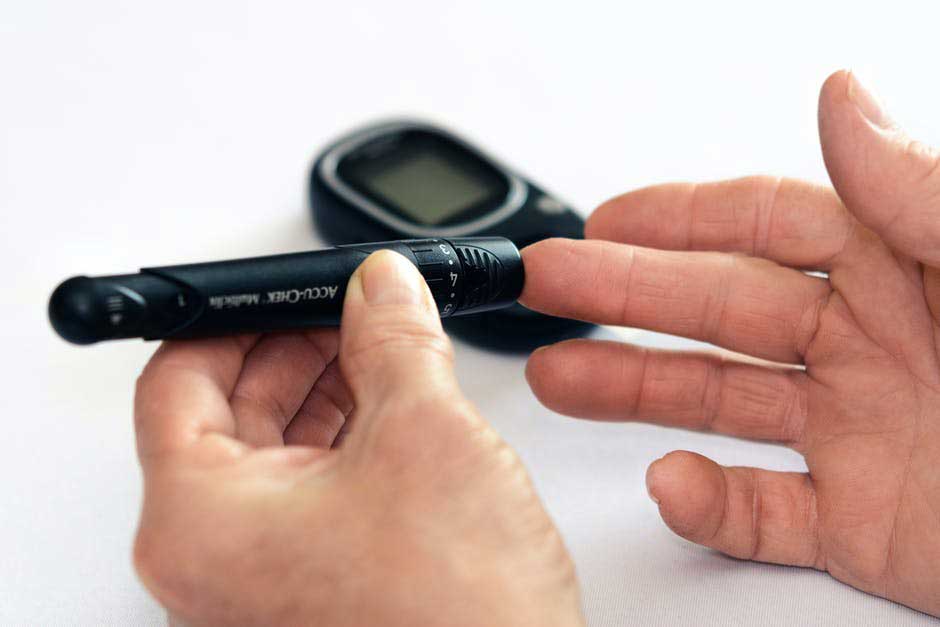Most people have probably heard the term ”blood sugar” a thousand times over, but the reality is that most people don’t really know what it means.
Most of us know it’s important to have stable blood sugar levels. However, there is still a sense of mystery around what our blood sugar levels actually do for us on a daily basis.
To learn more about how unstable blood sugar levels can disrupt your health, this blog is for you.
What Does the Term ”Blood Sugar” Mean?
Contrary to what many might think, blood sugar doesn’t exactly point to sugar levels in the blood. Well, not the type of sugar you add to your coffee, anyway. But rather, the amount of energy present in our bloodstream.
Sugar in the body is known as glucose and is our main energy source that powers us through our daily activities.
When you consume carbohydrates the body breaks down its components in the digestive tract. Most of these components are converted to glucose, i.e. energy.
So, in short, the term blood sugar refers to glucose energy levels present in the blood.
How Blood Sugar Levels Affect the Body
You can think of your blood sugar levels as the lead controller of many metabolic processes in the body. In other words, blood glucose levels dictate how hungry you are. They also dictate your energy levels, cravings, moods, sleep quality, and more.
In order for humans to feel their best, well-balanced blood sugar levels are important. You don’t want your blood glucose levels to be too high, or too low, either.
When this happens, a myriad of unwanted processes takes place in the body — much like a domino effect. For example, when your blood sugar is too low, you could feel lethargic, irritable, have brain fog, and sleep poorly.
If your blood glucose levels are too high, this can lead to issues such as weight gain, poor energy levels, and skin problems. Not-to-mention, long-term conditions such as diabetes.
How Does Your Body Balance Blood Sugar Levels?
To achieve well-balanced blood sugar levels, your body relies on two important hormones: insulin and glucagon.
Whenever you consume something, your pancreas secretes insulin into the bloodstream.
The purpose of insulin is to assist with blood sugar regulation. You can think of insulin as a traffic controller. It helps to determine how much glucose to send to your cells for energy, and how much to keep in your bloodstream.
Most of the glucose that insulin regulates goes to your liver cells, muscle cells, and fat cells. They store the glucose as energy, which we use up throughout the day.
Without enough insulin, glucose levels in the blood would remain too high. This results in a major blood sugar imbalance. This can result in a myriad of conditions, and chief among them is Type 2 diabetes.
Glucagon is also important as it assists in the processing of glucose in the body. When glucose reaches the liver cells, glucagon is responsible for breaking down glycogen into glucose.
It’s also responsible for glucose synthesis and inhibits the formation of glycogen. Without this hormone, glucose would not make it back into your bloodstream for circulation.
Insulin Resistance
Insulin plays the biggest role in regulating blood sugar levels. It’s an adaptive hormone that can quickly regulate the amount of sugar in the blood. And most of the time, it doesn’t matter how much sugar or carbohydrates you’ve actually consumed.
But it’s no superhero, insulin has a limit to how much it can handle. When blood sugar levels are balanced, regulating excess glucose is a simple task that takes an average of 1-2 hours in healthy individuals.
However, when you consume excess sugar this process goes into overdrive and becomes stressed. Ultimately, this leads to insulin resistance.
As your blood becomes oversaturated with glucose, your body needs more and more insulin to manage your blood sugar levels. Eventually, your body can become insulin resistant and will not be able to regulate or process glucose effectively.
This can result in a number of conditions, but the worst among them is also Type 2 diabetes.
Why Balanced Blood Sugar Levels Are Important
As you can see, your body is sensitive to the number of carbohydrates and sugars you consume. Whether you consume too little or too much, unbalanced blood sugar levels can lead to a host of health issues.
Here’s how you can benefit from keeping your blood sugar levels in check:
- Steady levels of energy — when your blood sugar is too high, this can result in fatigue, weight gain, obesity, and depression. When they are too low, this can result in dizziness, fatigue, headaches, and drowsiness
- Improved focus — glucose is fuel for the brain and, in short, provides fuel for effective cognitive function
- Weight control — unbalanced sugar levels can lead to excessive hunger, cravings, and insulin resistance. All of which can lead to weight gain and obesity
- Improved skin conditions — spikes in blood glucose cause insulin levels to increase, as well as the production of androgens. This can result in acne and other skin problems
Aside from these benefits, stable blood glucose levels have positive long-term effects on the body.
For one, you can prevent the onset of conditions such as prediabetes and diabetes itself, which affects over 10.5 percent of the U.S. population, alone.
Once diabetes sets in, this can also lead to the onset of many other serious health conditions. Just some of these include heart disease, stroke, nerve damage, kidney disease, dementia, and more.
Even if you don’t develop diabetes in your lifetime, stable blood sugar levels can maintain your cognitive function and memory.
However, insulin resistance can impact your cerebral glucose metabolism, which can affect your memory in the long term. Ultimately, this could spur on degenerative diseases such as Alzheimer’s and dementia.
Take Your Health into Your Own Hands
Balanced blood glucose levels do more than just regulate your appetite or impact your sleep quality. In the long term, the management of your blood sugar levels can impact your longevity.
Interested in taking care of your health and what you put into your body? Learn more about our product, Pep2Dia®, for blood sugar management.

